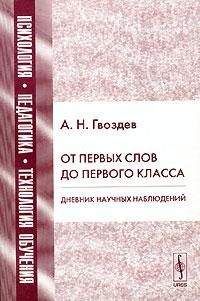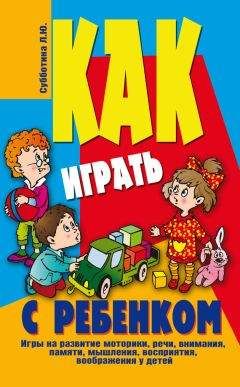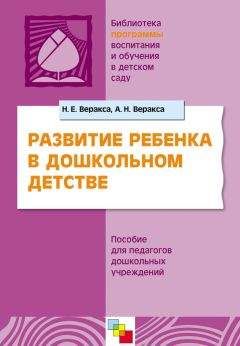Роберт Говард - Английский язык с Р. Э. Говардом
necessity [nɪˈsesɪtɪ], niche [nɪʧ], comb [kəum]
He labored like one driven by the necessity of haste; yet he was forced to move at a snail's pace, clinging like a fly on a wall. His groping hands and feet found niches and knobs, precarious holds at best, and sometimes he virtually hung by his finger nails. Yet upward he went, clawing, squirming, fighting for every foot. At times he paused to rest his aching muscles, and, shaking the sweat out of his eyes, twisted his head to stare searchingly out over the jungle, combing the green expanse for any trace of human life or motion.
Now the summit was not far above him (теперь вершина была недалеко над ним), and he observed, only a few feet above his head, a break in the sheer stone of the cliff (и он заметил, лишь в нескольких футах над головой, разлом в отвесном камне утеса). An instant later he had reached it (минутой позже он достиг его) — a small cavern, just below the edge of the rim (маленькую пещеру, как раз под краем кромки). As his head rose above the lip of its floor (когда его голова поднялась над выступом площадки; to rise — подниматься; lip — губа; край, выступ), he grunted (он издал неопределенный звук; to grunt — хрюкать; ворчать, бормотать). He clung there (он прилип там; to cling — цепляться; прилипать, крепко держаться), his elbows hooked over the lip (его локти зацепились за выступ). The cave was so tiny that it was little more than a niche cut in the stone (пещерка была такой крошечной, что она была немногим больше углубления, вырубленного в камне; to cut — резать; прорубать; высекать), but it held an occupant (но она вмещала обитателя; to hold — содержать в себе, вмещать). A shriveled brown mummy, cross-legged, arms folded on the withered breast (ссохшаяся коричневая мумия с поджатыми ногами, руками, скрещенными на сморщенной груди; cross-legged — сидящий «по-турецки», положив ногу на ногу или поджав ноги;fold one's arms — скрестить руки на груди) upon which the shrunken head was sunk (на которую была опущена сморщенная голова; to sink — тонуть; опускать; to shrink — уменьшаться, сокращаться; высыхать, пересыхать, усыхать), sat in the little cavern (сидела в небольшой пещерке; to sit — сидеть). The limbs were bound in place with rawhide thongs which had become mere rotted wisps (конечности были связаны в таком положении ремнями из сыромятной кожи, которые стали не более чем сгнившими клочками; to bind — связывать; in place — на своем месте; to become — стать;mere — простой, не более чем, всего лишь). If the form had ever been clothed (если эта фигура когда-то и была одета; form — форма; фигура /человека/), the ravages of time had long ago reduced the garments to dust (разрушительное действие времени давно превратило одеяние в прах; ravages — разрушительное действие; to reduce — уменьшать; превращать). But thrust between the crossed arms and the shrunken breast there was a roll of parchment (но между скрещенными руками и сморщенной грудью был засунут свиток пергамента; to thrust — колоть; засовывать), yellowed with age to the color of old ivory (пожелтевший от времени до цвета старой слоновой кости; age — возраст; старость; долгий срок).
cavern [ˈkævən], shrivel [ʃrɪvl], color [ˈkʌlə]
Now the summit was not far above him, and he observed, only a few feet above his head, a break in the sheer stone of the cliff. An instant later he had reached it — a small cavern, just below the edge of the rim. As his head rose above the lip of its floor, he grunted. He clung there, his elbows hooked over the lip. The cave was so tiny that it was little more than a niche cut in the stone, but it held an occupant. A shriveled brown mummy, cross-legged, arms folded on the withered breast upon which the shrunken head was sunk, sat in the little cavern. The limbs were bound in place with rawhide thongs which had become mere rotted wisps. If the form had ever been clothed, the ravages of time had long ago reduced the garments to dust. But thrust between the crossed arms and the shrunken breast there was a roll of parchment, yellowed with age to the color of old ivory.
The climber stretched forth a long arm and wrenched away this cylinder (скалолаз протянул вперед длинную руку и вырвал этот цилиндр; to wrench away — вырывать). Without investigation, he thrust it into his girdle (не рассматривая: «без исследования», он сунул его за пояс) and hauled himself up until he was standing in the opening of the niche (и стал подниматься, пока не оказался стоящим на открытом пространстве ниши; to haul oneself up — подтягиваться, подниматься). A spring upward and he caught the rim of the cliffs (прыжок вверх — и он схватился за кромку утесов; to catch — схватывать) and pulled himself up and over almost with the same motion (и подтянулся и вытянул себя через = перебросил себя через /кромку/ почти одним и тем же движением; to pull — тянуть, тащить; to pull oneself up — подтягиваться;same — тот /же/ самый, этот же; один и тот же).
There he halted, panting, and stared downward (там он остановился, тяжело дыша, и вгляделся вниз; to pant — задыхаться, часто и тяжело дышать).
climber [ˈklaɪmə], cylinder [ˈsɪlɪndə], halt [hɔ:lt]
The climber stretched forth a long arm and wrenched away this cylinder. Without investigation, he thrust it into his girdle and hauled himself up until he was standing in the opening of the niche. A spring upward and he caught the rim of the cliffs and pulled himself up and over almost with the same motion.
There he halted, panting, and stared downward.
It was like looking into the interior of a vast bowl (это было, словно смотришь внутрь огромной чаши), rimmed by a circular stone wall (окруженной ободом округлой каменной стены; to rim — служить ободом; окружать, обрамлять). The floor of the bowl was covered with trees and denser vegetation (дно чаши было покрыто деревьями и более густой растительностью; floor — пол; дно), though nowhere did the growth duplicate the jungle denseness of the outer forest (хотя нигде растительный покров не повторял густоту джунглей внешнего леса; to duplicate — снимать копию; повторять, копировать, дублировать). The cliffs marched around it without a break and of uniform height (утесы располагались вокруг него без проломов и на одинаковой высоте; to march — маршировать; стоять, располагаться). It was a freak of nature (это был каприз природы), not to be paralleled, perhaps, in the whole world (которому, вероятно, не было аналогии во всем мире; to parallel — находить параллель /чему-л./, подбирать пару, находить соответствие; parallel — аналогия, соответствие, сравнение): a vast natural amphitheater (громадный природный амфитеатр), a circular bit of forested plain (круглый участок равнины, заросшей лесом; to forest — засаживать деревьями, превращать в лес), three or four miles in diameter (три-четыре мили диаметром), cut off from the rest of the world (отрезанный от остального мира; to cut off — отрезать), and confined within the ring of those palisaded cliffs (и замкнутый в пределах кольца этих утесов в виде частокола; palisade — палисад, частокол).
interior [ɪnˈtɪərɪə], circular [ˈsə:kjulə], diameter [daɪˈæmɪtə]
It was like looking into the interior of a vast bowl, rimmed by a circular stone wall. The floor of the bowl was covered with trees and denser vegetation, though nowhere did the growth duplicate the jungle denseness of the outer forest. The cliffs marched around it without a break and of uniform height. It was a freak of nature, not to be paralleled, perhaps, in the whole world: a vast natural amphitheater, a circular bit of forested plain, three or four miles in diameter, cut off from the rest of the world, and confined within the ring of those palisaded cliffs.
But the man on the cliffs did not devote his thoughts to marveling at the topographical phenomenon (но человек на холмах не посвящал = не тратил свои мысли на восхищение топографическим феноменом; to devote — посвящать; уделять; to marvel — изумляться, удивляться; восторгаться, восхищаться). With tense eagerness he searched the tree-tops below him (c напряженным рвением он внимательно рассматривал верхушки деревьев под собой; to search — искать; внимательно рассматривать), and exhaled a gusty sigh (и издал нетерпеливый выдох; gusty — ветреный; резкий, отрывистый; нетерпеливый; gust — порыв ветра) when he caught the glint of marble domes amidst the twinkling green (когда заметил отблеск мраморных куполов среди мерцающей зелени; to catch — ловить, улавливать; увидеть мельком). It was no myth, then (значит, это был не миф); below him lay the fabulous and deserted palace of Alkmeenon (под ним располагался легендарный и покинутый дворец Алкминона).
Conan the Cimmerian (Конан-киммериец), late of the Baracha Isles, of the Black Coast, and of many other climes where life ran wild (прежде /Конан/ с Барачских островов, с Черного Побережья и из многих других краев, где жизнь текла нецивилизованно = имела дикий характер; late — бывший, прежний; to run — бежать; протекать, течь; иметь /определенный/ склад, характер, свойство, форму), had come to the kingdom of Keshan following the lure of a fabled treasure (попал в королевство Кешан вслед за соблазном сказочного сокровища = завлеченный сказочным сокровищем; following — вслед за; lure — соблазн; привлекательность, притягательность; to lure — завлекать, соблазнять) that outshone the hoard of the Turanian kings (которое затмевало казну туранских королей; to outshine — затмить /в яркости, блеске, роскоши и т. д./; hoard — запас; накопление, сокровищница, казна).
phenomenon [fɪˈnɔmɪnən], exhale [eksˈheɪl], treasure [ˈtreʒə]
But the man on the cliffs did not devote his thoughts to marveling at the topographical phenomenon. With tense eagerness he searched the tree-tops below him, and exhaled a gusty sigh when he caught the glint of marble domes amidst the twinkling green. It was no myth, then; below him lay the fabulous and deserted palace of Alkmeenon.
Conan the Cimmerian, late of the Baracha Isles, of the Black Coast, and of many other climes where life ran wild, had come to the kingdom of Keshan following the lure of a fabled treasure that outshone the hoard of the Turanian kings.
Keshan was a barbaric kingdom (Кешан был варварским королевством) lying in the eastern hinterlands of Kush (простиравшимся в восточных глубинных районах Куша; to lie — лежать; быть расположенным, простираться; находиться;hinterland — районы, расположенные вглубь от прибрежной полосы/границы) where the broad grasslands merge with the forests that roll up from the south (где обширные луга сливаются с лесами, которые подступают с юга; to merge with — сливаться, соединяться с). The people were a mixed race (народ был смешанной расой), a dusky nobility ruling a population that was largely pure Negro (/при этом/ смуглая знать правила населением, которое было в значительной степени чисто негритянским; largely — в значительной степени). The rulers — princes and high priests (правители — князья и верховные жрецы) — claimed descent from a white race (заявляли о происхождении/претендовали на происхождение от белой расы; to claim — требовать; заявлять, утверждать) which, in a mythical age, had ruled a kingdom whose capital city was Alkmeenon (которая в мифическую эпоху правила царством, стольным градом которого был Алкминон). Conflicting legends sought to explain the reason for that race's eventual downfall (противоречивые легенды пытались объяснить причину окончательной гибели этой расы; to seek — искать; пытаться), and the abandonment of the city by the survivors (и оставления города оставшимися в живых; survivor — оставшийся в живых, уцелевший). Equally nebulous were the tales of the Teeth of Gwahlur (в равной степени расплывчатыми были сказания о Зубах Гвалура; equally — равно, в равной степени), the treasure of Alkmeenon (сокровище Алкминона). But these misty legends had been enough to bring Conan to Keshan (но этих смутных легенд было достаточно, чтобы привести Конана в Кешан; misty — туманный; смутный; mist — /легкий/ туман; дымка; мгла), over vast distances of plain, riverlaced jungle, and mountains (через огромные протяженности = пространства равнин, окаймленных реками джунглей и гор; distance — расстояние; протяженность, отдаленность; даль; to lace — шнуровать; отделывать, окаймлять).




